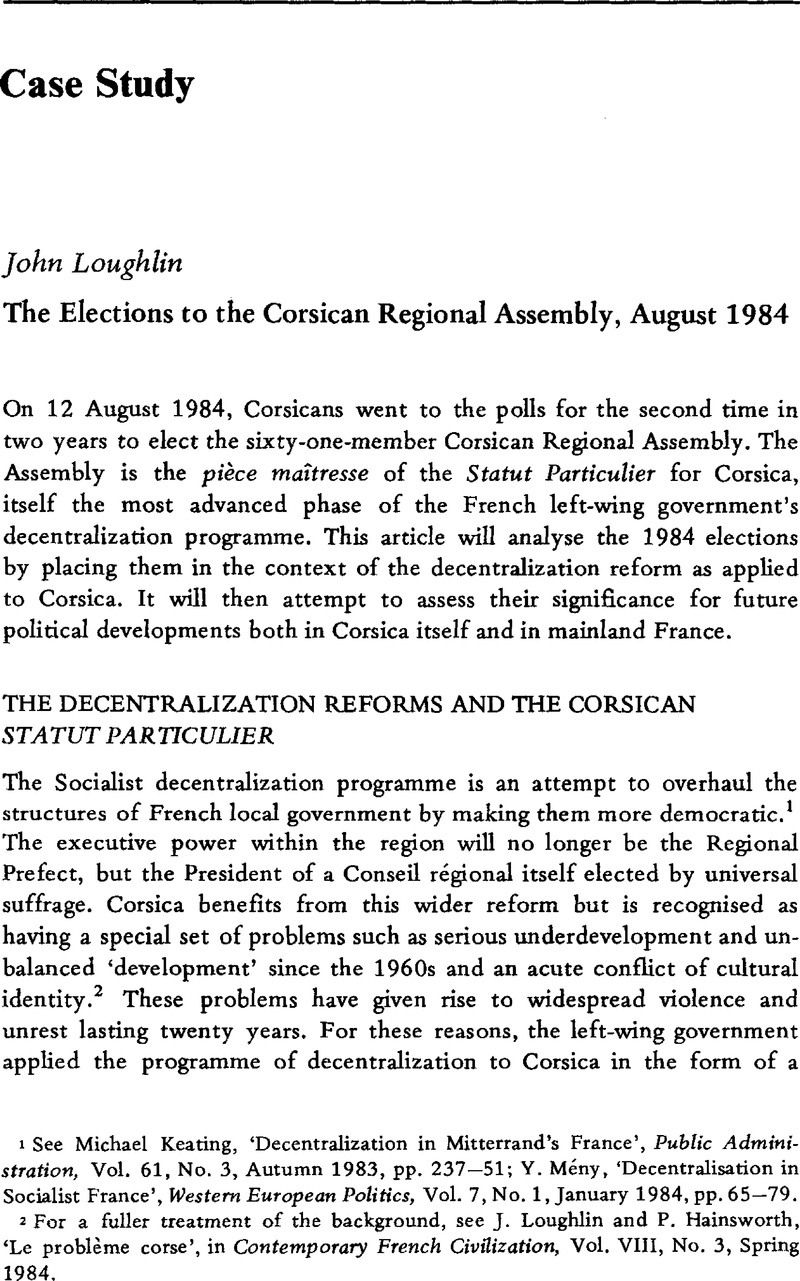Article contents
The Elections to the Corsican Regional Assembly, August 1984
Published online by Cambridge University Press: 28 March 2014
Abstract

- Type
- Case Study
- Information
- Copyright
- Copyright © Government and Opposition Ltd 1985
References
1 See Keating, Michael, ‘Decentralization in Mitterrand’s France’, Public Administration, Vol. 61, No. 3, Autumn 1983, pp. 237–51;CrossRefGoogle Scholar Mény, Y., ‘Decentralisation in Socialist France’, Western European Politics, Vol. 7, No. 1, 01 1984, pp. 65–79.Google Scholar
2 For a fuller treatment of the background, see Loughlin, J. and Hainsworth, P., ‘Le probléme corse’, in Contemporary French Civilization, Vol. VIII, No. 3, Spring 1984.Google Scholar
3 Loi no. 82–214 du 2 mars 1982 portant statut particulier de la région de Corse (organisation administrative), J. O. du 3 mars, 1982, pp. 1–16; no no. 82–659 du 30 juillet 1982, J. O. du 31 juillet 1982, pp. 2459–63.
4 The other institutions are two consultative councils: the Conseil économique et social and the Conseil de la culture, de l’éducation et du cadre de vie; three Offices (development agencies) dealing with agriculture and transport; and five Commissions which are internal Assembly bodies.
5 For a more detailed account see J. Loughlin, ‘Socialist Decentralisation in France: the Corsican Statut Particulier’, unpublished manuscript, European University Institute, Florence, July 1984.
6 See below.
7 This should not be exaggerated — a certain amount of political modernization has taken place.
8 See note 4.
9 This was a ‘ras‐le‐bol’ reaction against the FLNC xenophobic campaign against continentaux (those born on the French mainland).
10 Giacobi and de Rocca‐Serra had dominated post‐war Corsican politics as the heads of the two rival clans.
11 The following data are taken from Le Monde, 14 August 1984.
12 Corsica has a North African immigrant population that is proportionally higher than in any other French region.
13 The following data are taken from Le Monde, 25 August 1984.
14 See, e.g. the article by the RPR deputy, Michel Barnier, who is also President of the Conseil généraI of Savoy, in Le Monde, 17 August 1984.
- 1
- Cited by


